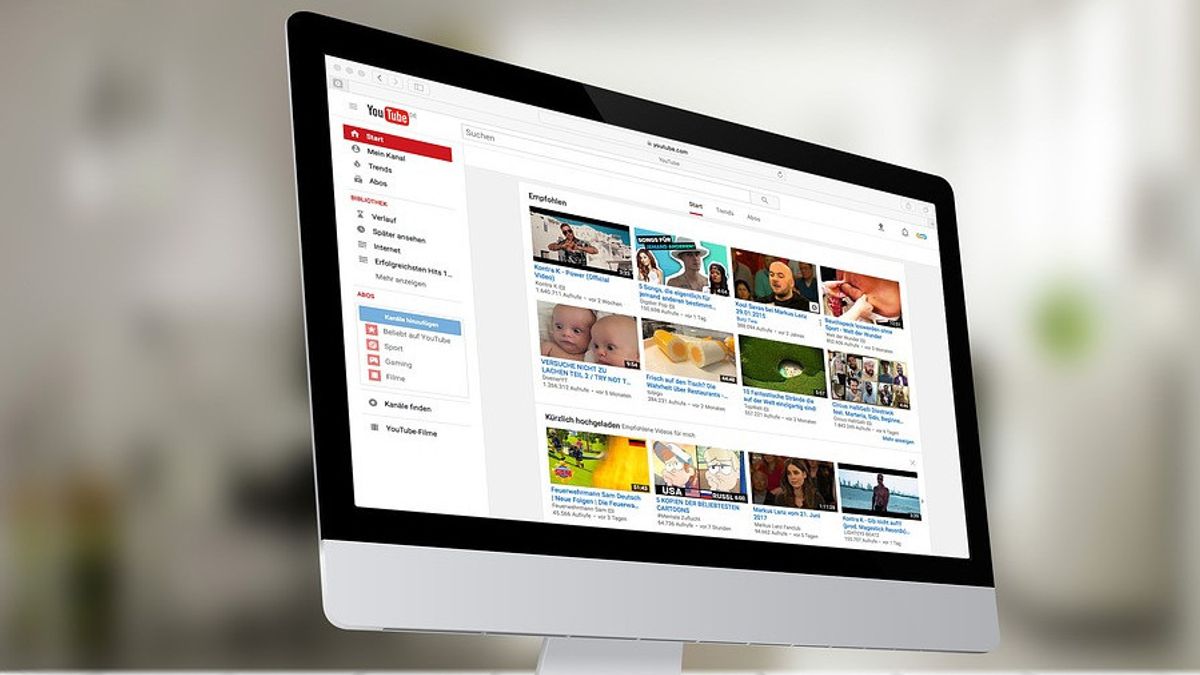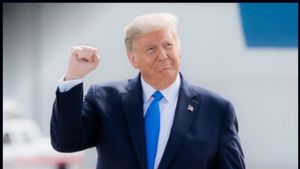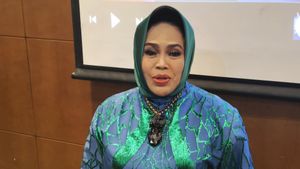JAKARTA – Russia on Friday, March 18 demanded that the tech and social media giant, Google Alphabet Inc., stop spreading what it says is a threat to Russian citizens. Especially on the video-sharing platform, YouTube. This is a move that could signal the blocking of the social media service on Russian territory.
Russia's Telecommunications and Digital Regulator, Roskomnadzor, said advertisements on YouTube calling for the communications systems of the Russian and Belarusian rail networks to be suspended showed a hostile attitude towards Russia. They also considered that the spread of the advertisement was evidence of the US company's anti-Russian position. However, it is not stated which account published the ad.
"The actions of the YouTube administration are terrorist in nature and threaten the lives and health of Russian citizens," the regulator said. "Roskomnadzor firmly opposes such advertising campaigns and demands that Google to stop broadcasting anti-Russian videos as soon as possible."
Google itself has removed the ads flagged by the Russian government. But they did not explain further the reason for the action.
The dispute between Google and Roskomnadzor, is the latest in a series of disputes between Moscow and foreign technology companies in Ukraine.
YouTube, which has blocked Russian state-funded media globally, is under heavy pressure from Russian communications regulators and politicians.
Russia is also angry that Meta Platform Inc., allowed social media users in Ukraine to post hate speech messages such as "Death to Russian invaders".
Moscow has also blocked Instagram this week, and has even stopped Russian netizens from accessing Facebook. They call it a restriction by the platform in the Russian media.
Several Russian news outlets, including RIA and Sputnik, have quoted unnamed sources as saying that YouTube could be blocked next week or as early as next Friday.
Alternative Social Media
Former Russian President Dmitry Medvedev on Friday also wrote a strong critique of foreign social media companies. He mentions both Meta and YouTube by name, but he hints that the door leading to their possible return to the Russian market will be left open.
"The 'guardians' of free speech take their social media very seriously to allow their social media users to wish death to the Russian military," said Medvedev, who served as Russia's President from 2008 to 2012. He is now Deputy Secretary of the Russian Security Council, and actively writes on Telegram messaging app.
Medvedev said Russia had the necessary tools and experience to develop its own social media. He also said the "one-way game" of Western companies controlling the flow of information could not continue.
"In order to return, they must prove their independence and good attitude towards Russia and its citizens," he wrote. "However, it's not a fact that they can dip their toes in the same water twice."
VKontakte, Russia's answer to social media platforms like Facebook, has now broken activity records on its platform since Russia sent troops to Ukraine on February 24.
VOIR éGALEMENT:
The site attracted 300.000 new users in the two weeks after Russia started what it called "special operations" to demilitarize and "de-Nazify" its neighbors.
On the day, when Instagram was blocked in Russia, VKontakte said that its daily domestic audience grew by 8.7% to more than 50 million people per day. This is a new record for them.
Anton Gorelkin, a member of the Russian State Duma Committee for information and communication, directed Russians to use the service which will help them move videos from YouTube, a similar local platform, RuTube.
"Not that I'm calling on everyone to leave YouTube immediately," he said on his Telegram channel. "But maybe, given recent events, it's a good idea to follow the principle of not keeping all your eggs in one basket."
He said earlier this week that YouTube may face the same fate as Instagram if it continues to "act as a weapon in the information war".
The Russian tech entrepreneur said this week that it would launch the image-sharing app Rossgram. This is expected to fill the domestic market of short picture and video apps and help fill the void left by Instagram.
In November, Gazprom Media also launched Yappy as a domestic rival to the video-sharing platform TikTok.
The English, Chinese, Japanese, Arabic, and French versions are automatically generated by the AI. So there may still be inaccuracies in translating, please always see Indonesian as our main language. (system supported by DigitalSiber.id)















